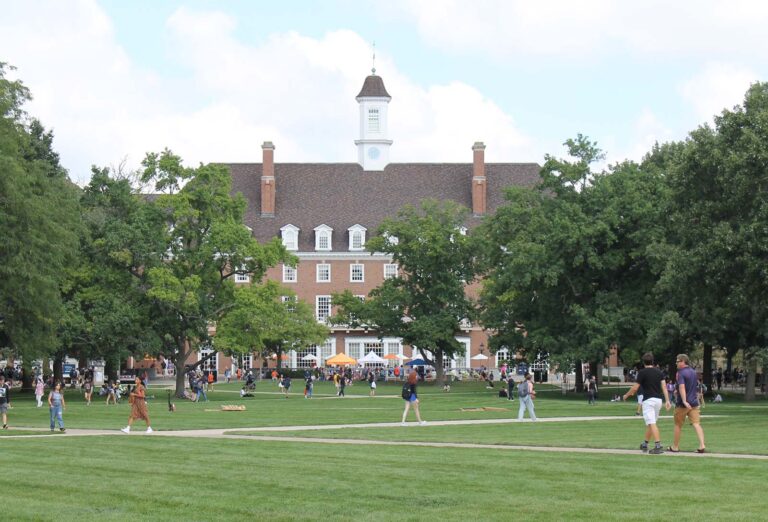URBANA — Fall classes began Monday at the University of Illinois Urbana-Champaign.
It was also the beginning of the university’s new Illinois Neurodiversity Initiative. The program aims to smooth the experience of college for students with autism.
INI Director Jeanne Kramer created the program after leading an internship pipeline program specifically for University of Illinois students with autism.
“We thought that when we started opening our arms and saying, ‘We’re here to support autistic students that they would just start lining up, you know, saying, ‘We’re here. Support us,’” Kramer says.
Kramer says students did not line up. After some progress and some COVID-related setbacks, her new model recruited a cohort of ten students and their parents. They will meet regularly and get tutoring and other supports — until they graduate and find a job.
Although Kramer has ideas for what kind of support to provide, she hopes the ten freshmen will make the final decision, based on what they want and need.
Kramer says the University of Illinois is not supporting the initiative financially. The Autism Program, a state initiative with an affiliate at the university, is paying her salary. Some U of I departments are offering in-kind support, like peer tutors.
New social skills for those with autism and those without
Programs like the Illinois Neurodiversity Initiative are becoming more common. One website lists over 300 different colleges with supports specifically for autistic students.
Zoe Gross is the director of advocacy for the Autistic Self Advocacy Network. She also has autism.
She says programs like INI are important — as long as they steer clear of teaching autistic students to act like their non-autistic peers.
Gross says this is called “camouflaging” and is associated with exhaustion and depression.
“That’s often not a productive approach for us to take in social situations. It’s often much better to teach things like how to talk about your disability to others, how to advocate for yourself,” Gross says.
Gross says socialization classes should go both ways.
“If socialization between two people is failing, it’s often because there’s a mismatch in communication styles or because neither has been taught how to deal with the other communication style, not just because one person is doing a bad job,” Gross says.
Kramer says she fully agrees with this sentiment. She is bringing in neurotypical peer tutors to explain why they do things like say a compliment they don’t mean.
With permission from her cohort, she hopes to flip the mentor-mentee relationship as well to teach the neurotypical tutors how to befriend people with autism.
“As neurotypicals, we are constantly judging people based on how they act socially. When we someone acting socially different, we need to quickly think that this person is processing differently – and that’s not wrong,” Kramer says.
For example, someone with autism may express their interest in continuing a conversation differently than someone who is neurotypical, Kramer says. Their cue may be standing nearby without moving away, instead of maintaining eye contact or interjecting into the conversation.
In this situation, Kramer suggests neurotypical students simply ask their autistic peer whether they want to continue the conversation.
Kramer says that professors and peers at the University of Illinois do discriminate against students with autism. For example, professors sometimes dismiss disability accommodations for neurodiverse students as “excuses.”
Kramer says she does see slow progress in autism awareness on campus. She hopes the peer mentor relationships in the Illinois Neurodiversity Initiative will spread that awareness further.
Emily Hays is a reporter for Illinois Public Media. Follow her on Twitter @amihatt.

